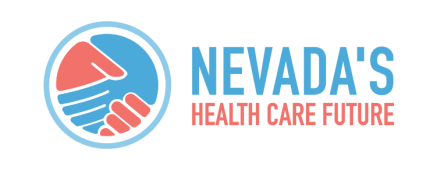Nevada’s Health Care Future Submits Comment To Federal Government On Nevada Public Option
CARSON CITY, Nev. — Nevada’s Health Care Future (NVHCF) today submitted a public comment to the federal government during its public comment period on the state’s 1332 waiver application to implement the Nevada Public Option.
Read NVHCF’s comment below:
Dear Secretary Yellen and Secretary Becerra:
We appreciate the opportunity to comment on the state of Nevada’s 1332 waiver application to implement the Nevada Public Option. Nevada’s Health Care Future (NVHCF) is committed to proven solutions that build on what’s working in our health care system today, so every Nevadan has access to the high-quality health care they need and deserve.
Implementing the Nevada Public Option will ultimately harm access to affordable health coverage and high-quality care for Nevadans. While Nevada’s current administration has made some effort to acknowledge the flaws of Nevada Senate Bill 420, which established the Public Option, the fundamental structural flaws of the underlying policy remain – putting Nevadans at risk of harmful consequences if the state is allowed to implement this new health insurance system.
Our position is backed by strong evidence and thorough analysis by respected experts. Prior to the state’s revised 1332 waiver application, NVHCF commissioned Wakely Actuarial Consulting to perform an actuarial analysis of SB 420. While Wakely’s analysis, which is enclosed herein, did not factor in reinsurance, their findings highlight SB 420’s structural flaws. They conclude that, if enacted, the bill would exacerbate Nevada’s already significant health care provider shortage, put increased financial hardship on hospitals, and ultimately threaten access to care for Nevada patients. Currently, Nevada ranks 48th in the country for primary care physicians per capita, and two thirds of Nevadans live in federally designated primary care Health Professional Shortage Areas (HPSAs). Residents’ access to care should not be put at additional risk.
The analysis also warns that the Public Option could reduce health care competition in Nevada, cause some insurers to exit the market and deter new entrants. We have already seen similar consequences in other states. In Colorado, the state Public Option’s unsustainable rate-setting regulations have already led four insurers to exit the market, and Coloradans continue to face higher premiums despite the law’s promise to reduce the cost of coverage.
In Washington state, the first to fully implement a state government public option, premiums have continued to rise and despite guarantees from state officials, it has done almost nothing to lower the state’s uninsured rate.
Colorado and Washington’s experiences are a reminder that there is no successful Public Option in any state in America. The Public Option has failed in every state where it has been tried, and there is no evidence to suggest Nevada would fare any better under this proposal.
In fact, it is clear that Nevada could endure similar consequences under its own Public Option, posing a substantial threat to health care choice, affordability and access for Nevadans, in direct contradiction to the promises Public Option supporters made in hastily passing SB 420 into law.
Upon examination of the state’s revised waiver application, it is apparent that it relies on numerous misguided assumptions, each carrying potential harmful consequences for Nevada residents. Our primary concerns include:
- With many providers and hospitals already at or close to 100% of Medicare fee-for-service (FFS) reimbursement rates, and without any meaningful drivers contained in this policy to lower the cost of care, there is very little chance of carriers meeting the state’s premium reduction targets.
- The many new requirements and mandates for payers that SB 420 imposes could increase, rather than decrease, administrative costs, depending on factors such as unique network requirements or unique benefit design requirements. Even worse, any reduction in carriers’ required risk margins could pose a significant threat to competition and consumer choice in the state, the complete opposite of the purported objectives of SB 420.
- Particularly in light of the above concerns, the assumption that the creation of Public Option plans will help lower non-public option premiums is deeply misguided.
- The degree to which the waiver ties the procurement process for Medicaid contracts directly to carriers’ submission of Public Option plans for Nevada’s individual market could destabilize the Medicaid program.
- With its revised application, the state proposes putting into place a market stabilization program that implements and relies upon the Public Option. Tying the state’s proposed reinsurance program to the creation of the Public Option is a risky strategy, and the facts suggest this is not a viable model for financing the reinsurance program.
In summary, Nevada’s revised 1332 waiver application fails to address the fundamental problems within SB 420’s Public Option provisions. Moreover, its significant risks to health care accessibility and affordability for Nevadans remain quite concerning. Notably, the proposal’s projected impact in reducing the number of uninsured Nevadans by just 2,200 strongly suggests that coverage gains could better be achieved by building upon the success of our current health care system where private coverage and existing public programs work together to expand access to coverage and care.
In addition to these serious concerns regarding the underlying policy and its consequences for Nevadans, we would direct your attention to pending litigation filed jointly in Nevada’s First Judicial District Court by state Senator Robin L. Titus, MD, and the National Taxpayers Union. Their lawsuit calls into question the state’s authority to implement the waiver, alleging that SB 420 violates three separate provisions of the Nevada Constitution.
Given the fact that under section 1332(a)(1)(C) and (b)(2), a state law that authorizes implementation of the state plan is a threshold requirement for a 1332 waiver, we request, at a minimum, that the Centers for Medicare & Medicaid Services (CMS) stay review of the application pending the outcome of this ongoing litigation.
The surest way, however, to protect Nevadans from the negative consequences of this proposal is to deny this waiver application outright.
Nevada’s Health Care Future has always focused on enhancing health care accessibility by identifying what is working in our health care system and building on our existing system’s successes rather than starting from scratch. We are committed to supporting policy proposals that align with these goals. Thank you for providing us with the opportunity to voice our significant concern regarding SB 420 and Nevada’s 1332 waiver application.

